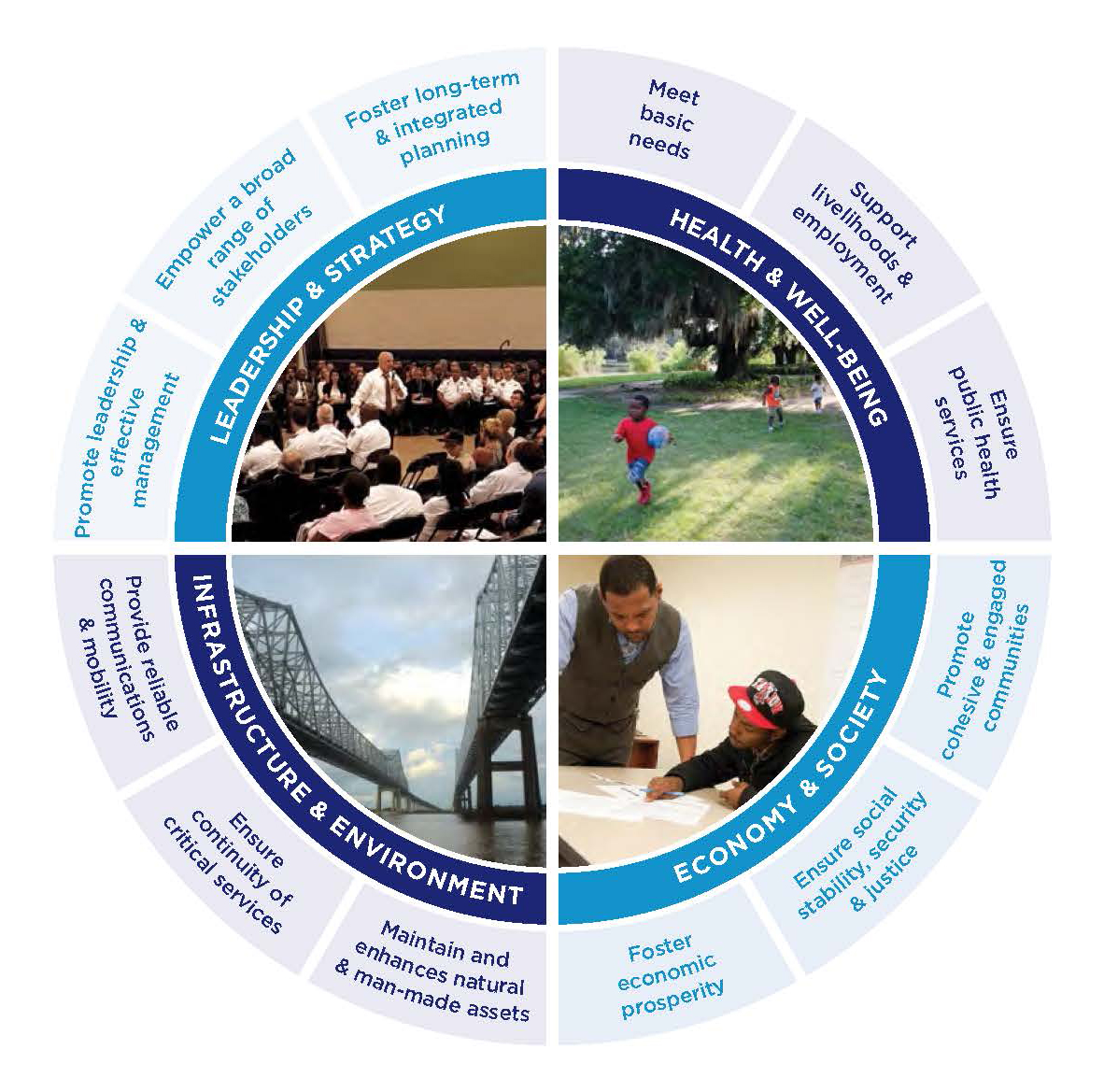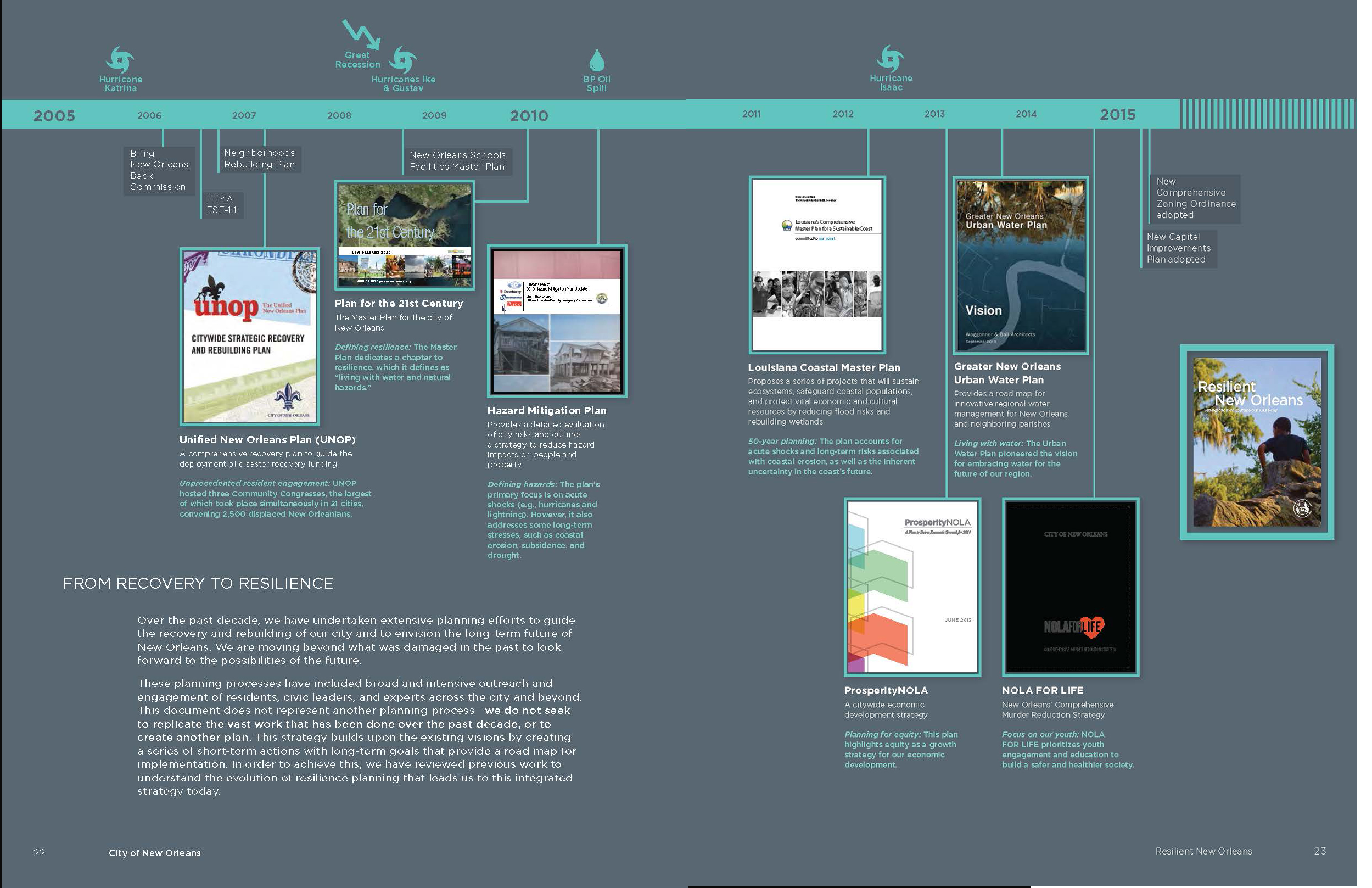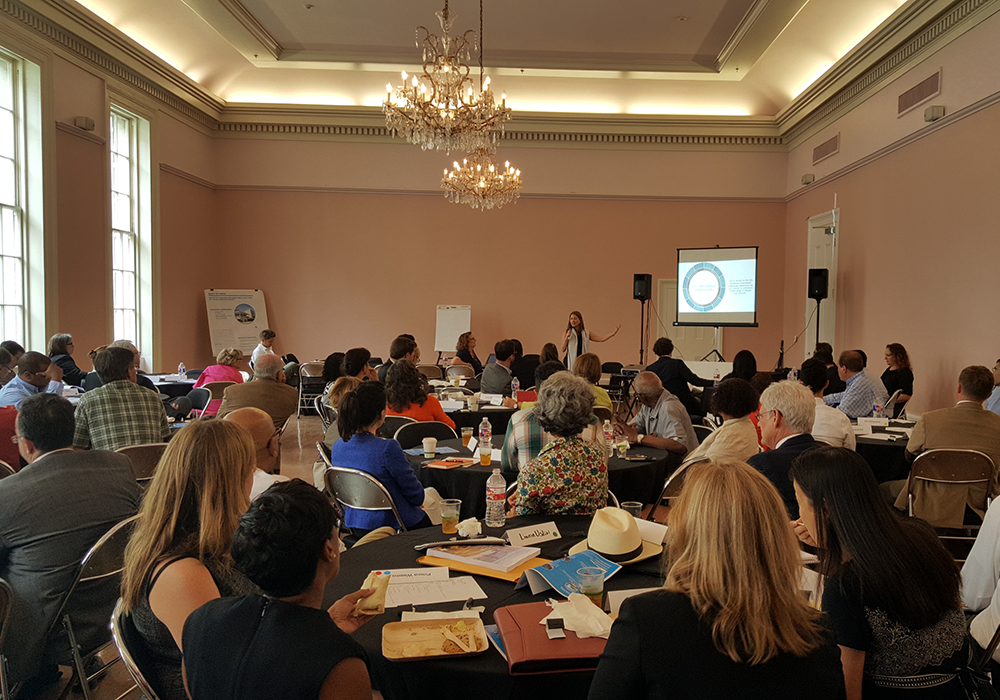New Orleans, Louisiana
Resilient New Orleans – Strategic Actions to Shape Our Future City
2016 National Planning Excellence Award: Best Practice
Summary
Resilient New Orleans is unique in that it addresses social equity in conjunction with environmental issues and disaster preparedness. The strategy represents three overarching fundamental challenges to the city's resilience — the environment is changing; equity is critical; and the future is uncertain.
Process
Resilient New Orleans combines local expertise with global best practices to confront the city's most urgent threats. The strategy is led by the city's Chief Resilience Officer with process guidance from 100 Resilient Cities — Pioneered by the Rockefeller Foundation and HR&A Advisors.
The strategy sets forth three generational visions to adapt to the changing environment, develop an equitable city, and create a dynamic and prepared city. The strategy integrates existing plans and processes with new commitments. Resilient New Orleans is comprised of 41 actions that are ambitious and programmatic, as well as short and long-term goals. Emphasized throughout the process was the stakeholders' need to see any new plan founded on implementation.

The City Resilience Framework (CRF) highlights the interconnectedness of systems in building resilience. The CRF guided the strategy development process from the beginning.
Engagement
More than 350 local, national, and international stakeholders participated in the planning process. Specific workshops with representatives and advocates of vulnerable communities were convened by local philanthropic partners. This ensured continued participation and feedback throughout the strategy development process. The Office of Neighborhood Engagement also convened more than 150 neighborhood leaders to explore resilience-building opportunities within their communities.
Perceptions assessments were conducted to understand what New Orleanians felt planning was doing well and where improvements were necessary. The results were cataloged and analyzed to map perceptions against drivers of resilience. The results were then reported back to maintain transparency and continuity of the strategy process.
The outreach efforts have produced dedicated collaboration between public, private, nonprofit, and philanthropic sectors.

Resilient New Orleans builds on the planning and engagement process of the past 10 years.
Results
The challenges that Resilient New Orleans explores are not necessarily surprising. However, the research and development process for the strategy explored the gaps in integration and where New Orleans has been lagging in action on environmental and social issues. What makes Resilient New Orleans different is the concept of seeing positive generational change with actions today. The effectiveness of this approach is rooted in a committed collaboration between partners across sectors and adaptation and change must be both physical and environmental. One of the first major milestones in the execution of the strategy was the successful entry and subsequent $141 million award for the National Disaster Resilience Competition. This award is a down payment on the city's future resilience and offers the first major opportunity to put the strategy into comprehensive practice.

A representative from 100 Resilient Cities leads a joint working group session during the strategy development.


